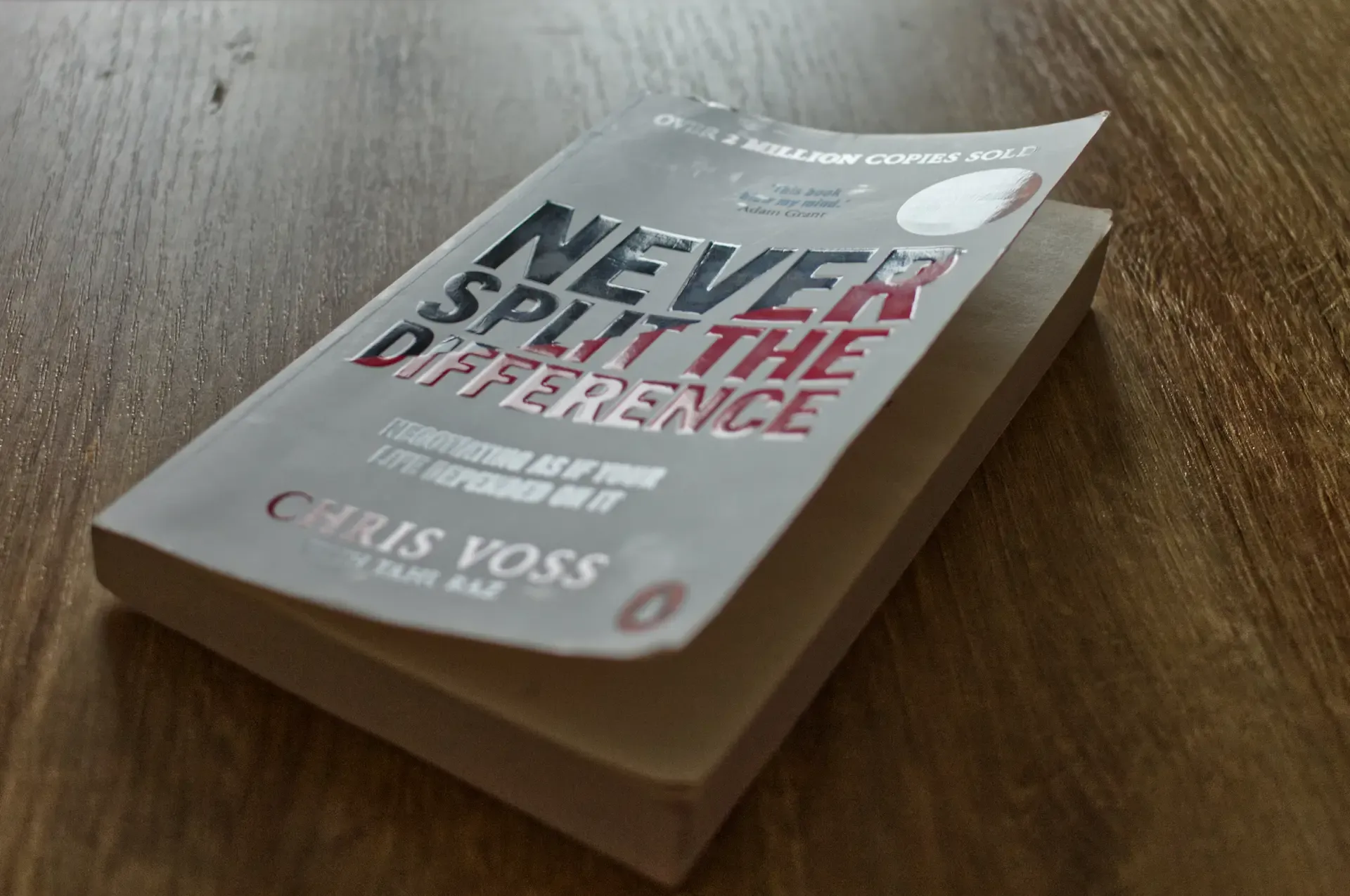Book review: Never Split the Difference by Chris Voss
This is a book I wish I had when I was younger. It's become one that I recommend to everyone to read, regardless of their current position. It's just that useful.

I am super conflicted about this book. On one hand, I am mad that I’ve not read this before. It would have made life so much easier in certain aspects. On the other hand, I’m glad I only got to read it with the maturity that I have at the moment, because there are parts of the book that need additional context.
Many many years ago, long before I moved to the UK, I asked my then girlfriend how she gets her way with people. When I tried to argue or ask or negotiate or convince someone of something, I had massive pushback. For her it was effortless, and mostly the content was the same. I asked multiple times how she did it, and she could never tell me. At the time I chalked this up with “oh she’s an attractive young woman, people will relate to her differently than they do to me.” It was probably part of the reason. The other was that she unconsciously used a bunch of the things Chris wrote about.
I’m also old enough to have watched Columbo on the TV. Here’s a clip of what you’re missing out on: https://youtu.be/XgYDaUppeC0. Basically he just walks around pretending not know things, asking everyone seemingly dumb questions, intentionally doing things wrong, intentionally coming to the wrong conclusions, because guilty people always have a need to be smarter, and they always correct him, because they have a need to be seen as smart. That is their downfall, that is their gotcha. Chris’s book exploits this human glitch.

The good
Oh the places you’ll go
I regard this book as a manual for the human psyche and behaviour in western societies. We want roughly the same things, and we all go about getting them in predictable ways because our values are roughly the same and predictable, and therefore you know what to do. A couple of choice things I learned:
Mirroring
Repeating the thing back at the person in the form of a question will get them to expand on what they said. This sidesteps the resistance of asking “Why?” The word “why” will immediately bring up defences because they have to explain themselves. Whereas if you ask the same thing with the naivety of someone who doesn’t know, they get to feel smart, and explain their reasoning, getting you what you want without conflict.
Tactical empathy and labelling
Use words to describe what seems to happen. This will make the other person feel like you understand them and they will be more comfortable and open going into any sort of conversation / negotiation with you.
Strive for “no”
The word “yes” is deceptive, they might be using that so you stop and they get can on with their day. They can always change their minds later. A “no” will get them to think about what it is they’re saying no to though, and then you have a better negotiating position.
Take control in a way that they feel they’re in control
I kind of look at it as a form of martial arts. Let them make moves, and then redirect it to your benefit. Ask questions. Like Columbo, be curious. Get them to reveal stuff.
Black swans
The unknown unknowns, these are often surprising pieces of information that drastically change the power balance of the negotiating parties.
Leverage
Positive, in the “I have something you want” kind. Negative, in the “You want to avoid a thing I’m fully capable and prepared to do”, and normative, in the “This person is vegan, they won’t eat meat”, or they are Christian, therefore their behaviour adheres to the moral code of Christians.
You can use these to gently guide the other person to do what you want them to do.
Fairness and bending their reality
This wasn’t very fresh, because when I was reading about marketing, I already knew about different tactics that stores use to get you to accept different price points for products and services. Anchoring, positioning, emotional charge, etc all come here. The new part was how to apply this to negotiations.

The bad
It’s not exploitation, it’s exploitation
The book starts by a disclaimer that it’s not about strong arming the other person or cornering them into doing what you want, and then goes on using the word “exploitation” a number of different times. It feels weird.
There’s an example of a negotiation that wasn’t going anywhere until Chris learned that his counterpart, a CEO, belongs to a specific denomination of Christianity, and using the knowledge about that he could use words that made the CEO feel like Chris, who I’m not even sure is Christian to begin with, is in his in–group. That feels shady, because essentially he just lied to get what you want. Technically he didn’t, but pretended to be something he wasn’t.
The book’s full of examples like this, and a bunch of the ways to control and guide the negotiations rely on these: research, learn, craft, use, reap benefits. Is it useful? Absolutely. Is it ethical? Eh... I guess it depends on the individual’s moral compass.
Then there’s the entire chapter on “no.” It essentially says every “no” is merely a “not yet”, or “not with what you’re offering.” It does not have any aside that says that sometimes “no” is a complete sentence, and the only thing you should be doing is respecting that decision and walking away. I can see a bunch of young eager college grad dudes reading that chapter and thinking they can use that when trying to pick up women. It’s creepy.

Am I going to use it?
And should you read it?
Oh, absolutely, without a doubt. My brother, Dan, wrote an excellent article reviewing the same book. We finished reading it within two weeks of each other. He’s right in so many ways that I didn’t write the same points in this article, go read that one.
It’s useful. I wish I was given this when I was 17. I wish I had someone I could have practiced with. I wish I had someone who would have been able to tell me how they get people to do the things they want done. Obviously this book wasn’t around when I was 17 (2001, the book was first published in 2016), but similar ideas I wish were available.
There’s also an appendix with a lot of worksheets that you can copy out and use as a template for whatever it is you’re going to negotiate next.
The half sentence reason you should read this book is lifted from Dan’s blog:
“[...] if you don’t engage in a negotiation, you may be taken advantage of without you knowing”.
I’m excited to put these into practice, and no doubt I will make mistakes and miss out on opportunities, but I also haven’t put in my 10,000 hours into this. But at least now I know what I’m supposed to be doing.
Photo credits:
- cover photo by myself
- The Good background photo by Divya Agrawal on Unsplash
- The Bad background photo by Rubén Bagüés on Unsplash
- Am I going to use it background photo by CoWomen on Unsplash
